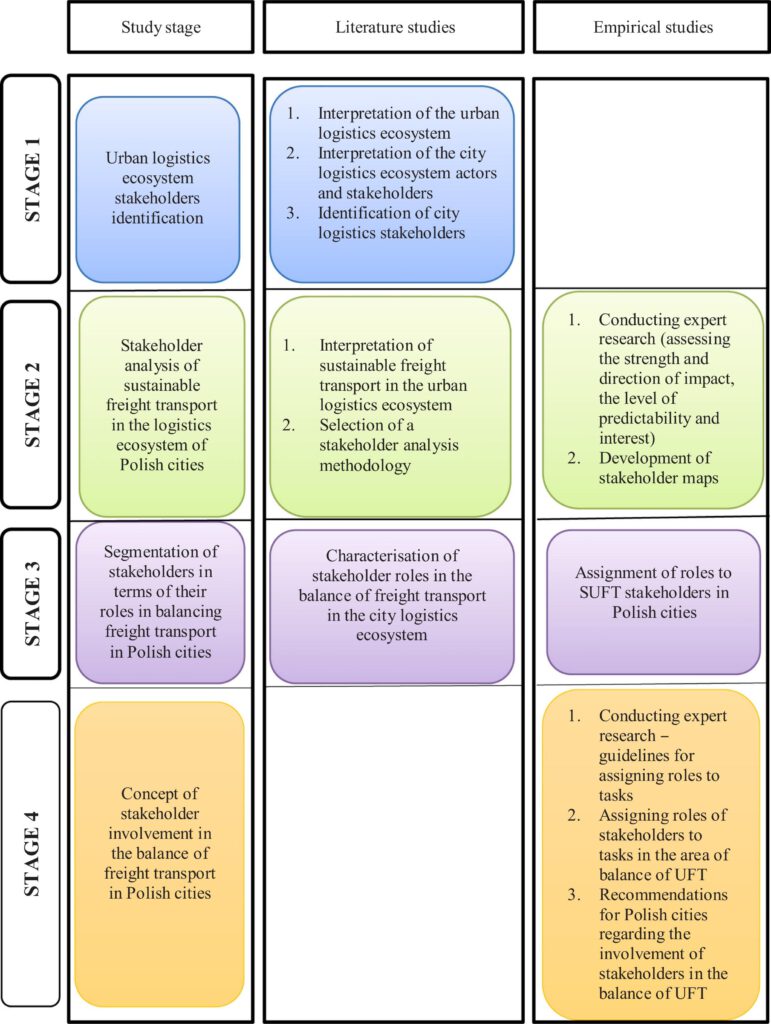Sustainability objectives determine the current guidelines for urban freight transport. Therefore, local authorities face the challenge of making urban freight transport sustainable. To do so, it is necessary to involve the various stakeholder groups of the city logistics ecosystem in ongoing sustainability efforts.
This problem formed the basis for the formulated objective of a recent article, which is to analyze the roles of stakeholders in freight transport sustainability in the city logistics ecosystem. For the objective thus formulated in the article, the researchers identified the roles of stakeholders in balancing freight transport.

In addition, they have identified the freight transport balancing tasks in the city logistics ecosystem in which the stakeholders assigned to each identified role should be involved. They adopted a universal methodology for identifying stakeholder roles and assigning them to tasks in the city logistics ecosystem. In the stakeholder analysis, they used expert research, where they first identified 16 stakeholder roles adopted in balancing freight transport in the city logistics ecosystem. They assigned these roles to the eight identified tasks in the city logistics ecosystem.
To verify the adopted methodology, they conducted research in Polish cities. As part of them, they identified a group of 20 stakeholders (out of 30 considered) who perform 10 out of 16 roles (six roles were not identified in Polish cities). Unfortunately, Polish cities did not identify any stakeholders performing the role of freight transport balancing leader. The recommendation for Polish city authorities is to include the 20 identified stakeholder groups in the individual identified freight balancing tasks in the city logistics ecosystem.
